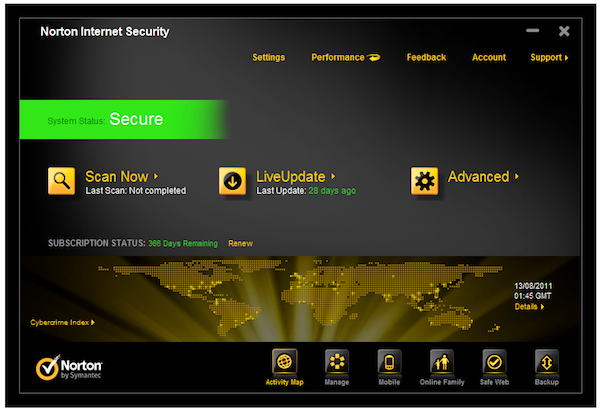
Norton Internet Security 2012: Nothing radically new, but plenty to like
The 2012 security suite party is now well under way, and Symantec are the latest company to join in with the release of Norton Internet Security 2012. The 2011 edition was excellent, and perhaps as a result this build is more about building on that, than providing anything radically new. Still, there’s plenty to like here.
Identity Safe, for instance, the browser tool for storing your logons and other information, then automatically completing web forms, can now hold your data in the cloud so it’s accessible from anywhere. Symantec’s reputation-based system, Insight, is now being used to check your downloads, and even try to identify brand-new malware.
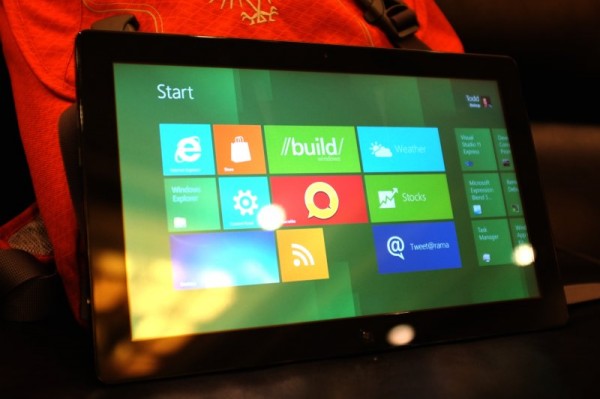
Hands on with the Samsung Windows 8 slate
Microsoft is handing out 5,000 Samsung-manufactured tablets running Windows 8 Developer Preview here at BUILD, the company's developer conference. I spent some quality time with one this afternoon. While my overall impressions are good, I must say that Windows 8 demos better than using it. Perhaps I'd feel differently having used the Windows 8 slate for a longer time.
Earlier today, Steven Sinofsky, Windows & Windows Live president, and several top lieutenants gave one of the best operating system demos ever. Not even Apple CEO Steve Jobs, in younger and healthier days, could have evoked such energy and enthusiasm as Sinofsky did today. It was infectious and aspirational in all the right ways.
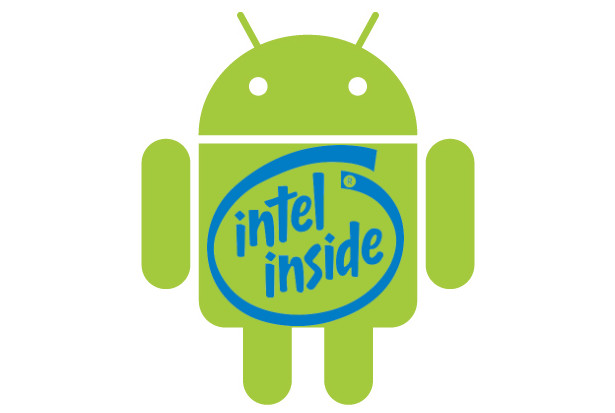
Crazy: Android is coming to Intel processors
Intel and Google jointly announced on Tuesday that future versions of Android will offer support for Intel's Atom mobile processor family, meaning Android will finally make the jump from being ARM-exclusive, to also supporting x86.
The x86 instruction set has historically been used only in computers that run desktop operating systems, and the reduced instruction set ARM has been used in devices that run mobile operating systems.
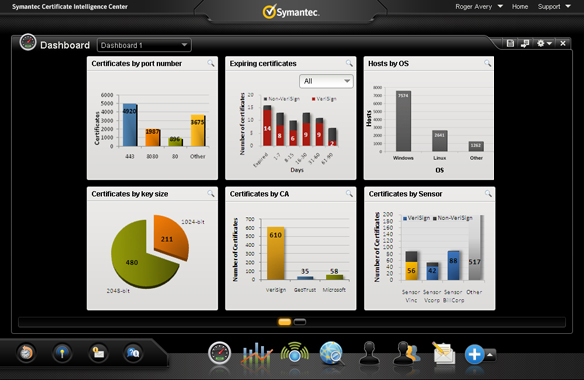
Symantec puts cloud-based certificate management system in beta
Digital certificate problems are much in the news, owing to the scandal over compromised certificate authority DigiNotar, but the more common certificate problems are much simpler and more confined. Large, complex organizations often have trouble keeping track of all their certificates.
It's surprisingly common to find management of external CA-issued digital certificates to be decentralized and unorganized. Different groups buy them for different sites and some guy keeps track of them, including minor details like the private keys and expiration dates, in an Excel sheet. One day when he falls through a manhole or leaves for another job, what's going to happen? You may not even remember about it until one of the certificates expires and users start getting errors. "I think that file was somewhere here in his network folder..."
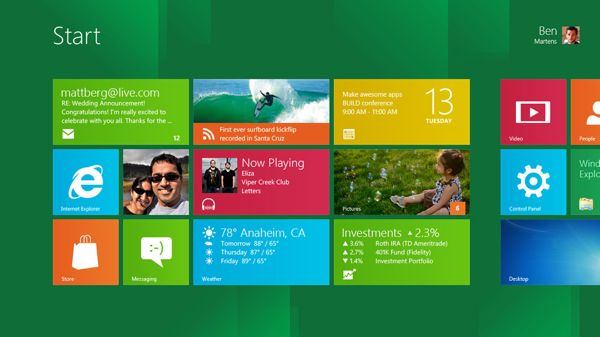
Windows 8 Developer Preview launches tonight at 8:00PM (PST)
Beginning at 8:00pm Pacific Time (3am GMT), Microsoft is making the first Developer Preview of Windows 8 available for download at the new Windows Developer Center (http://dev.windows.com) for anybody with a Windows Live ID to download.
This preview won't yet support ARM machines, but will be available in both 32-bit and 64-bit variants for x86 machines. It will also be available with the new Visual Studio and Expression tools on it, or just as the bare .iso that has only the sample applications on it.
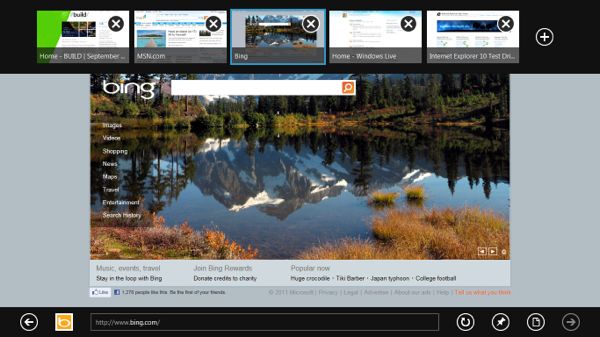
Internet Explorer 10 platform preview 3 comes with BUILD tablets
The 5,000 Samsung tablets that Microsoft is giving out to developers today at the BUILD conference will be the first items to include the third platform preview of Internet Explorer 10.
Steven Sinofsky, President of the Windows Division at Microsoft, showed off the fact that this preview will include both the traditional desktop IE10 view and a Metro UI interface. This included a demonstration on a Touch-based IE test drive site, which unfortunately was running from the demo tablet's C: drive rather than from the live Web, so we don't yet have the ability to preview the test site Sinofsky was showing during his keynote.
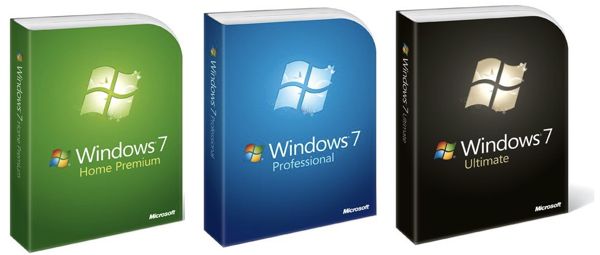
450 million copies of Windows 7 sold, consumer usage passes XP
In his Keynote opening the Build developers conference, President of Microsoft's Windows Division Steven Sinofsky touched on some updated facts on the still-relatively-young Windows 7 before diving into the demonstration of the next-generation Windows 8.
-Sales of Windows 7 is approaching 450 million copies.
-Windows 7 consumer usage is now greater than Windows XP.
-1,502 non-security product code changes have been delivered.
-Internet Explorer 9 is "the fastest-growing Windows 7 browser."
-542 million people using Windows Live services every month.

Windows 8 developer preview UX in pictures
Today at Microsoft's BUILD developer conference, Microsoft has begun to provide a more detailed look at Windows 8, and has just rolled out some screenshots of the developer preview of the new OS. Including the new lock screen, start screen, picker, touch-based Internet Explorer 10, and some shots of the touch keyboard options.
Many of these features were shown off at the D9 conference three months ago, but these are much higher resolution shots than previously available directly from Microsoft.
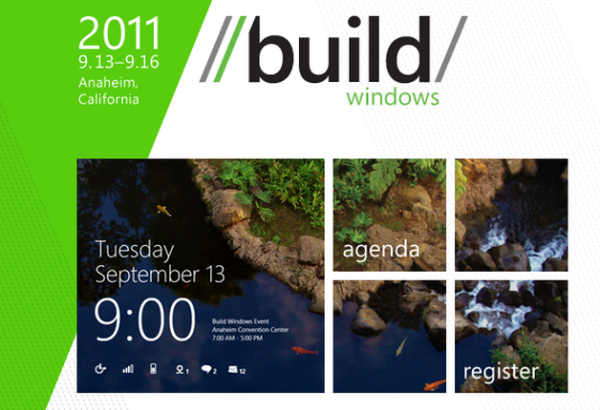
Live from Microsoft BUILD
LIVE BLOG
Steven Sinofsky, Microsoft's president of the Windows & Windows Live division, walked on the stage like a rock star this morning. "I'd like to invite everyone to Windows 8" Sinofsky says. He said that later this week, consumer usage of Windows 7 would exceed XP. Microsoft has sold nearly 450 million Windows 7 licenses. More than 500 million use Windows Live services.
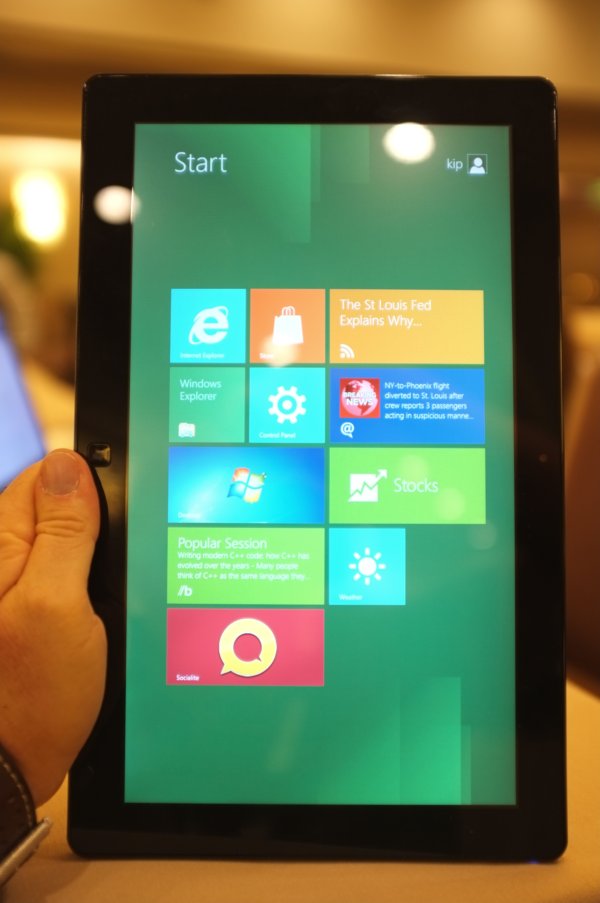
See the Windows 8 slate [photo]
This morning before the keynote started here at Microsoft's BUILD developer conference, I got a chance to handle a tablet running Windows 8.
There you see it. Move over Apple and iPad. Microsoft has got a fluid and lively user interface, and Apple won't be suing Microsoft for patent infringement like it is seemingly everyone else.
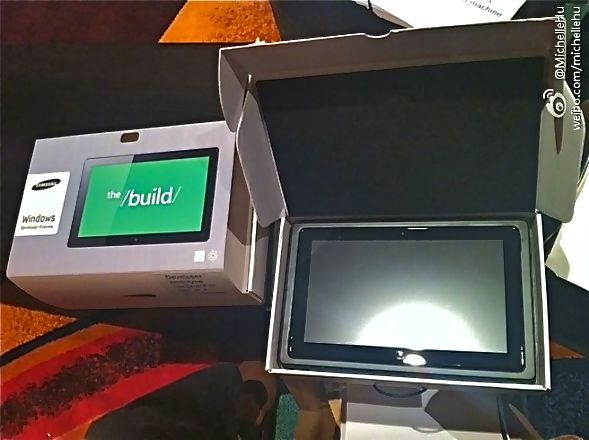
5,000 Samsung Windows 8 developer tablets to be given out at BUILD
Big news will be coming out of Anaheim, California today as Microsoft holds its BUILD developer conference, which is expected to focus largely on the next frontier of Windows development: the cross-platform Windows 8.
Your friend and mine, Betanews managing editor Joe Wilcox will be covering the event, and early leaks suggest that he might be heading back to his hotel room today with a brand new Windows 8 developer tablet from Samsung, which is pictured above.
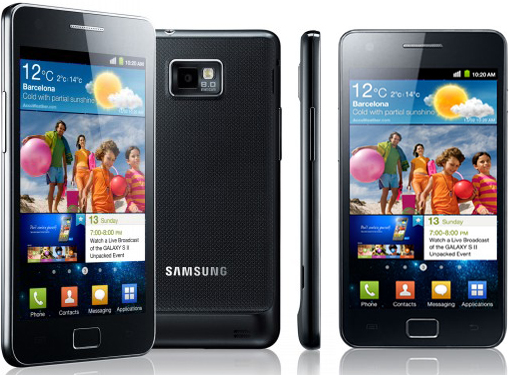
Who will buy Samsung Galaxy S II?
Close to 50 percent of respondents to a recent Betanews poll said they will buy Samsung's flagship smartphone within 6 months. But the majority -- 40.72 percent -- want the S2 sooner, opting to buy within 3 months. They won't wait much longer. Sprint's Galaxy S II version goes on sale September 16 and AT&T's two days later. I must admit to being tempted to buy myself.
But I'm not enthused with the poll results, just 307 respondents as I post; so the poll is back for new readers to have their say about the other hotly-anticipated smartphone (see, there is mobile life other than iPhone 5). :) I'd like to see a bigger sample before making any grand predictions about who is going to buy this heaping beauty -- 4.3-inch display from AT&T and 4.5-incher from Sprint.
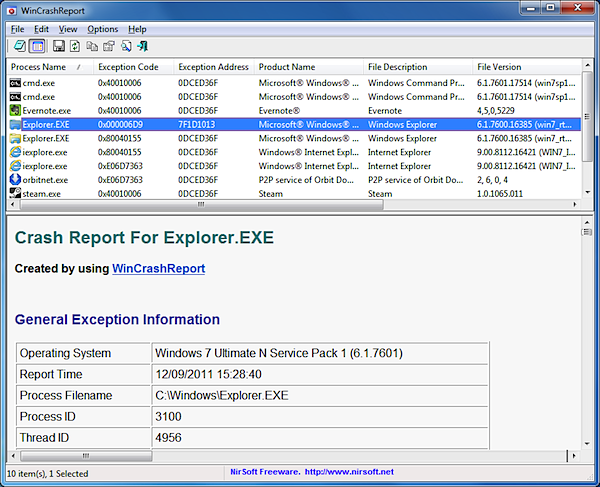
There's a better way to troubleshoot Win32 crashes
Figuring out exactly why an application has crashed can be tricky. Especially if you don’t see any useful error messages. And while Windows 7 does its best, the most you’re likely to see -- much, much later -- is a message suggesting that you upgrade to a new version.
Prolific freeware developer Nir Sofer has just released a new tool that can help, however, in WinCrashView. And although it’s targeted at developers and other expert users, anyone may be able to gain some useful crash troubleshooting clues from the data this program has to offer.
AT&T launches 4G Iconia Tab with oldest Honeycomb version
AT&T said Monday that it will begin selling the 10.1-inch Acer Iconia Tab A501, becoming the latest 4G-capable device on the carrier's network. Running Android 3.0 "Honeycomb," the tablet will be available in stores beginning on September 18.
As if Android fragmentation wasn't enough already, Android 3.0 puts Iconia behind the Samsung Galaxy Tab 10.1 (with v3.1) and Motorola XOOM (with v3.2), for example. Potential buyers must ask: Which matters more? 4G, or newer Honeycomb?

Forget 2012 end of the world, the PC apocalypse comes in 2015
Damn, if only some analyst firm other than IDC supported my long-standing position about cloud-connected mobile devices displacing PCs. After all, I dissed IDC's crazy forecast about Windows Phone being No. 2 smartphone OS in 2015. Now the firm is back with another 2015 prediction, which I must agree with.
Spurred on by smartphone and media tablet adoption, more US Net users will access the Internet through wireless mobile devices than those wired to PCs; within four years. IDC predicts stagnation and then decline in number wired Internet users. Stated another way: Decline of the PC, since -- c`mon -- who really uses one without the Internet.